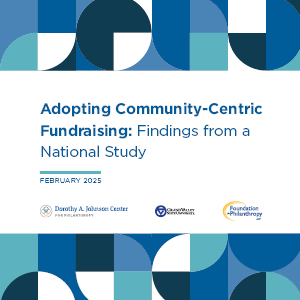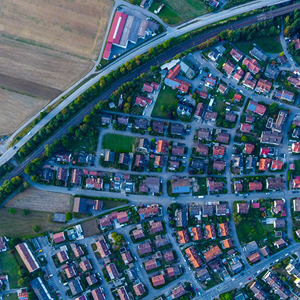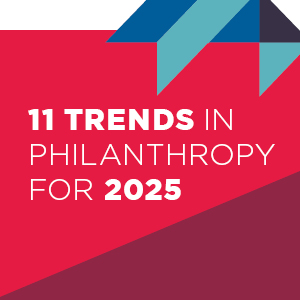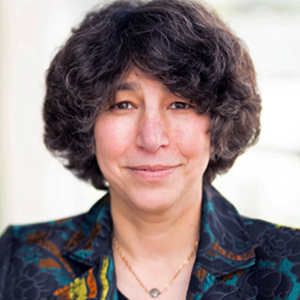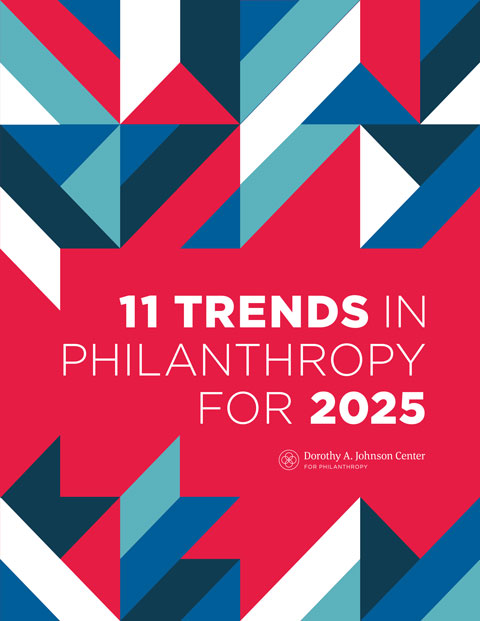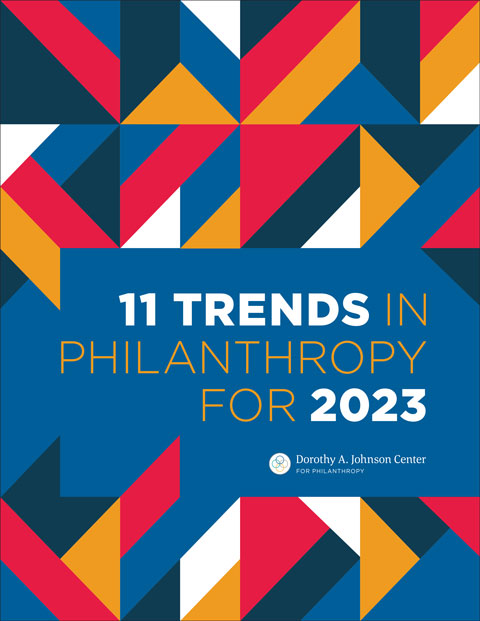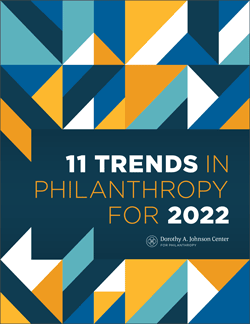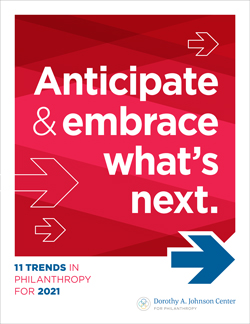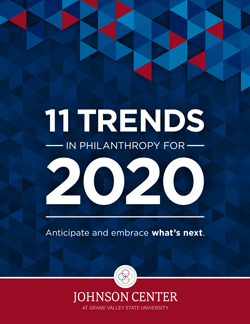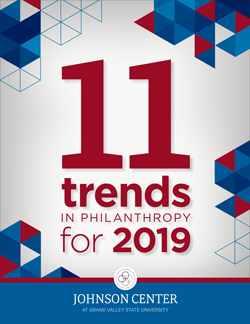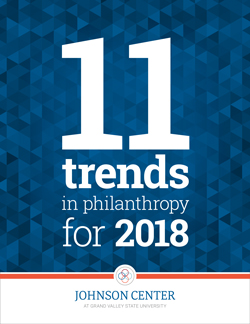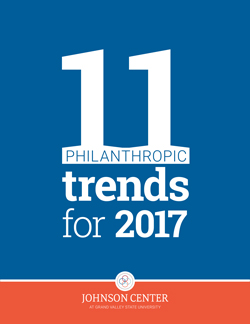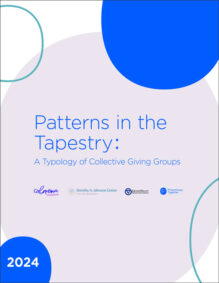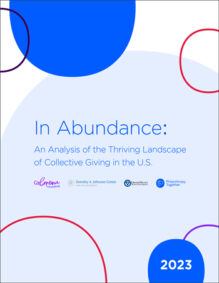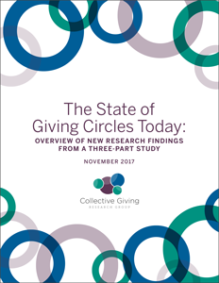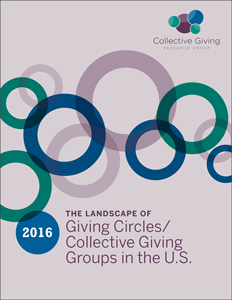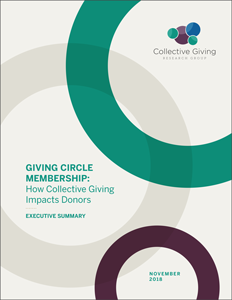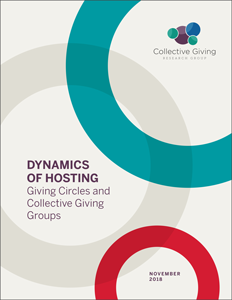It’s on all of us to consider more than one voice, more than one data point, more than one anecdote as we seek to better understand, strengthen, and advance philanthropy.
When we look to learn — about the sector itself, or about the work we do — it helps to find a variety of resources, stories, and perspectives already gathered in one place.
That’s what you’ll find in our collections — a wealth of related blog posts, research reports, videos, webinars, and more that can help you get a handle on a new topic or area of expertise with information and insights you can rely on.
Many of these trends trace back to a central question: what is the role of philanthropy in a democracy? Across our sector, in politics, in business, and in our communities, people are asking who has the responsibility — or the right — to tackle complex problems like poverty and climate change. How are our societies changing, and how are nonprofits and funders evolving in response to community needs and global crises?
These questions and others — about the value and use of data, about trust in our relationships, about philanthropy’s role in advancing equity — both shape and are shaped by larger, dynamic forces in our world and our work. Each 11 Trends in Philanthropy report is meant to help you anticipate and embrace what’s next.
11 Trends for 2025
I’m always looking to better understand how philanthropy is evolving and what we are seeing as trends to be aware of. In my annual fundraising landscape review, I turn to publications like the Trends report to capture these changes to the context in which I will be fundraising. I appreciate the breadth of trends covered, particularly the inclusion of philanthropic infrastructure changes.”
Adriana Loson-Ceballos
Colmena-Consulting
Adriana Loson-Ceballos
Colmena-Consulting
Individual Trends in Philanthropy
We have published an annual 11 Trends in Philanthropy report every year since 2017. More than 100,000 readers have accessed the individual articles and resources shared in this collection.
Philanthropy can be a substantial driver for prosperity in communities by supporting strategies for economic inclusion and access in our cities, towns, and regions. In this collection, we explore the factors that make up a healthy local and regional economy, one that strives to be inclusive and innovative. Voices from across the sector consider the roles that donors, foundations, and nonprofits can play in creating a regional inclusive growth ecosystem, and share examples of where this work is taking root.
Inclusive growth initiatives will only be brought to scale when collaboration, long-term investments, and systems change are achieved at the local level. These resources aim to arm you with the information you need to move forward.
Resources on Inclusive Growth
In this collection, you’ll find original blogs, articles, and author videos from The Foundation Review, as well as other resources produced to support inclusive growth initiatives.
A Short Documentary
Giving circles and other collaborative giving groups are made up of individuals who collectively donate money and sometimes unpaid time to support organizations or projects of mutual interest. Members have a say in how funding is given and which organizations or projects are supported.
Collective giving was a research focus of Jason Franklin, Ph.D., the inaugural holder of the W.K. Kellogg Community Philanthropy Chair. Jason conducted the research included in this Collection with collaborators in the Collective Giving Research Group: Jessica Bearman (Bearman Consulting), Julia L. Carboni, Ph.D. (Maxwell School of Citizenship and Public Affairs, Syracuse University), and Angela Eikenberry, Ph.D. (School of Public Administration, University of Nebraska at Omaha).
New Landscape Study
In Abundance: An Analysis of the Thriving Landscape of Collective Giving in the U.S.
Explore More on Giving Circles
& Collective Giving Groups
Collective giving groups are an increasingly significant philanthropic force, engaging a greater diversity of donors, including women, people of various ethnic and racial backgrounds, and donors of all wealth levels.
Looking for more on community philanthropy?
Peoples, cultures, institutions, and places come together in countless ways all over the world to construct ecosystems of social good.
Globally, these practices are often informed by Western philanthropic traditions and structures — but more often, they represent unique community expressions of what it means to do good for one another.
Global Philanthropy
In this collection you will find resources and information about philanthropic practices worldwide, as well as perspectives from practitioners based outside the United States.
Gen Xers and millennials with a high capacity for giving — whether from inherited or earned wealth — have unprecedented financial resources and big ideas for how to wield their financial power in new ways. They plan to disrupt the traditional world of charitable giving, and they want to do so now, not after they retire to a life of philanthropic leisure.
The Founding Frey Foundation Chair for Family Philanthropy, Dr. Michael Moody, partnered with Sharna Goldseker, founder of 21/64, on first-of-its-kind research on next gen donors. This work resulted in several reports as well as the best-selling book, Generation Impact: How Next Gen Donors Are Revolutionizing Giving.
FAMILY PHILANTHROPY
Book: Generation Impact
Research & Tools for Engaging Next Gen Donors
This collection includes original research, blog posts, articles, videos, and other resources on the topic of next generation donors.
Looking for more on family philanthropy?
We have to learn; and we have to be prepared to use what we learn to improve our programs, our giving, and how we measure change.
Philanthropic infrastructure organizations — like the Johnson Center — exist because of our sector’s deep desire to understand and strengthen the work we do so that we can advance our missions. That’s a goal we all share, and there are nonprofits, foundations, and donors everywhere who are committed to using learning for good.
In this collection, we present content that considers the value and practice of learning in philanthropy.
Journal of Philanthropy
The Foundation Review
Learning for Good
The resources in this collection are designed to support organizational and personal learning in philanthropy. They represent the perspectives and expertise of diverse voices and organizations across the field.
A donor’s journey deeply influences that donor’s giving, values, strategies, knowledge, skills, and ultimately, impact. As a field, we need to learn more about what goes into a successful donor journey and actively share these lessons with family donors of every sort.
The Donor Journeys Initiative is an integrated suite of projects produced by the Founding Frey Foundation Chair for Family Philanthropy. Each element of the initiative seeks to evaluate and analyze donor journeys, advancing family philanthropy’s understanding and maximization of diverse donor journeys in specific and complementary ways.
A Video Introduction to Donor Journeys
Dr. Michael Moody, Founding Frey Chair for Family Philanthropy at the Johnson Center, welcomes attendees to the 2019 National Summit on Family Philanthropy in Fort Lauderdale, Fla., and introduces the theme of the event — Our Donor Journeys and Why They Matter.
Attendees of the fifth biennial Summit reflected on their philanthropic journeys, heard about the fascinating paths taken by others, and explored the lessons learned along the way.
CASE STUDY
Guiding the Learning Journeys of Next Gen Donors
The Donor Journeys Initiative
This initiative was led by the Founding Frey Foundation Chair for Family Philanthropy, Dr. Michael Moody.
Looking for more on family philanthropy?
The Johnson Center has deep roots in West Michigan, where we have lived and worked since our founding in 1992. This collection includes blogs from local authors, region-specific reports and tools, and projects to support thriving neighborhoods.
RESOURCES & TOOLS


